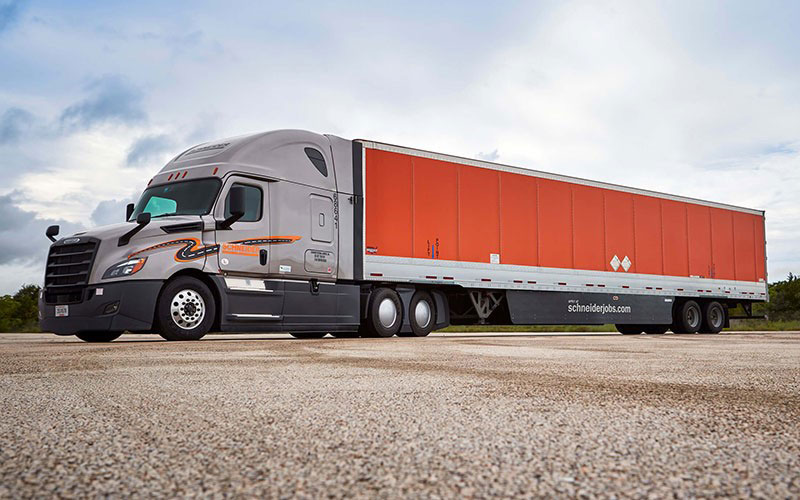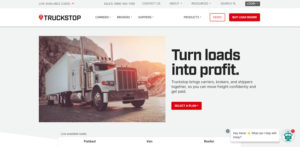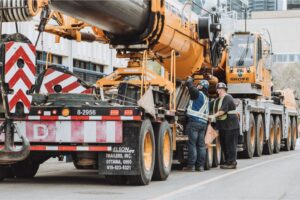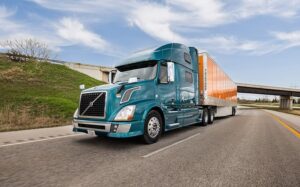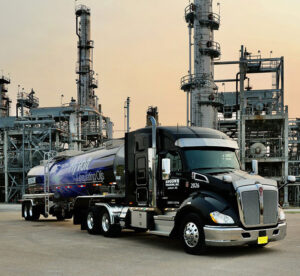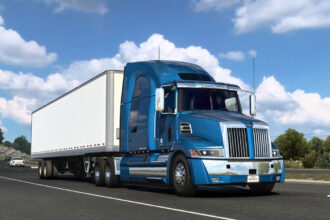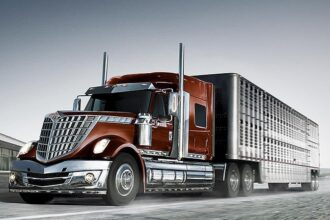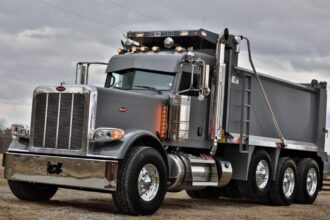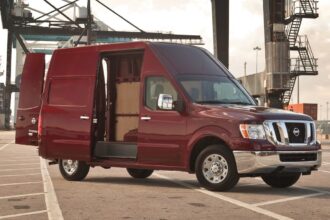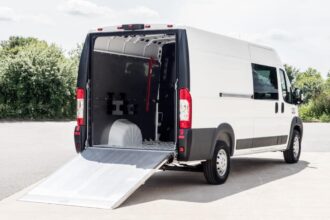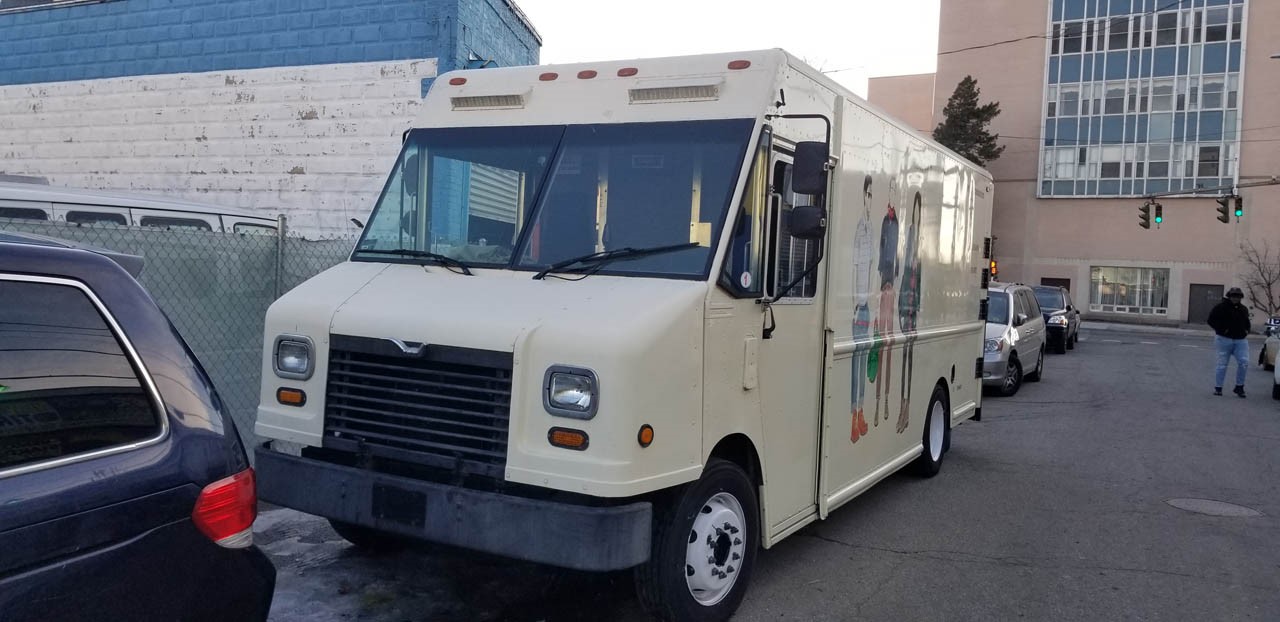Table of Contents
Are you interested in leasing an 18-wheeler for business? If that’s the case, you’ve come to the right spot. This guide will walk you through everything you need to know, from finding the right leasing company to choosing the right truck for your needs.
Leasing an 18-wheeler can be a great way to get the truck you need without having to make a large upfront investment. It can also be a good option if you’re not sure of how long you might need the truck or if you want to have the flexibility to upgrade or downgrade your truck in the future.
But with so many different leasing companies and truck options to choose from, it can be tough to know where to start. Don’t worry! This comprehensive guide can help you through the entire process.
To Lease 18-Wheeler For Business
- Explore The Different Types And Models Available For Lease.
- Compare The Advantages of Leasing Over Purchasing
- Calculate Your Budget
- Find The Right Leasing Company
- Familiarize Yourself With Lease Terms
- Understand Credit And Financial Requirements
- Choose The Ideal 18-Wheeler
- Negotiate Lease Agreements
Curious? Let’s fire on.
>>>MORE: How to Start an 18-Wheeler Business
1. Exploring the Different Types And Models Available For Lease.
To lease an 18-wheeler for business, explore the different types and models available. Start by carefully assessing your unique hauling requirements. Determine whether you need a long-haul, regional, or local truck, as this choice can significantly influence your overall operations.
Once you’ve honed in on your specific needs, then delve into the diverse range of models available. Prominent options like Freightliner, Volvo, and Kenworth each bring their distinct strengths to the table. Consider aspects such as fuel efficiency, maintenance costs, and resale value, as these factors can greatly impact the efficiency and profitability of your business. Additionally, weigh lease options, such as full-service leases, finance leases, or operating leases, to align with your budget and objectives.
2. Compare The Advantages of Leasing Over Purchasing.
When considering acquiring an 18-wheeler for your business, evaluate the benefits of leasing as opposed to buying. Leasing an 18-wheeler offers several key advantages over purchasing. First, it minimizes the upfront financial burden, requiring less capital down compared to buying. This leaves more cash available for other critical business expenses. Additionally, leasing allows for easier fleet management since newer models with advanced technology and lower maintenance costs can be regularly incorporated. Moreover, you can often deduct lease payments as operational expenses on your taxes, providing a financial benefit. Leasing also protects you from the risk of depreciation and the hassle of selling an aging vehicle. Ultimately, leasing offers flexibility and financial advantages that can be a game-changer for your trucking business.
3. Calculate Your Budget
To lease an 18-wheeler for your business, you need to calculate your budget. Start with the monthly lease cost, which can vary based on the truck’s make and model. Then, factor in insurance, which is crucial for your peace of mind. Don’t forget fuel expenses, maintenance, and registration fees. Think about how many miles you’ll be driving, as this impacts your fuel costs. Also, consider any unexpected repairs. Make a detailed spreadsheet, and remember, it’s not just about the upfront cost but the long-term financial health of your business. Always be thorough in your calculations!
4. Find The Right Leasing Company
To rent an 18-wheeler for your business, find the perfect leasing company. First, consider your budget and credit score. A good company should offer competitive rates and be willing to work with your financial situation. Then, research their reputation. Look for reviews and ask fellow truckers for recommendations. Check if they have a solid maintenance and breakdown support system. Ensure they have a variety of lease options to suit your needs, whether it’s short-term or long-term. Also, confirm the lease terms and any hidden costs. Finally, meet with their representatives and ask questions. Make sure they’re responsive and transparent. This decision can impact your trucking business, so choose wisely.
5. Familiarize Yourself With Lease Terms
To lease an 18-wheeler for your business, grasp the lease terms. These terms are the nitty-gritty details that can make or break your deal. First off, know your lease duration; this can determine how long you’ll have the truck. Be crystal clear on the monthly rent amount, and when it’s due. Don’t forget the security deposit – understand how much it is and the conditions for getting it back. Who’s in charge of maintenance and repairs? Check for any rules on utilities and, importantly, get that pet policy straight if you have furry co-pilots. Never skip the small print; it’s where the details hide, and you want to know them all. If you’re unclear about any terms, don’t hesitate to ask – this is your business, after all.
>>>GET SMARTER: 18-Wheeler Business Accessories you Need to Succeed
6. Understand Credit and Financial Requirements
To acquire an 18-wheeler for your business, understand credit and financial requirements. Your credit score plays a pivotal role. Lenders assess your creditworthiness to determine if you’re a good risk. A strong score, ideally above 700, opens doors to better terms and lower interest rates. Besides credit, you also need to show stable income and a solid business plan to convince the leasing company you’re a reliable partner. Financially, get ready for a down payment, usually 10-20% of the truck’s value. Plus, factor in ongoing monthly payments and operational costs. Planning and financial discipline are the keys to success in 18-wheeler leasing.
7. Choose the Ideal 18-Wheeler
To rent an 18-wheeler for business, select the perfect 18-wheeler. Start by evaluating your specific needs: payload capacity, distance, and terrain. Consider fuel efficiency; it’ll save money in the long run. A reliable engine and comfortable cab are vital for driver satisfaction. Investigate the leasing terms thoroughly – low down payments and reasonable monthly rates can ease financial stress. Look for a reputable lessor who provides maintenance and support. Research the truck’s safety features and compliance with regulations. Remember, your choice impacts your business’s efficiency and bottom line. A well-informed decision ensures a smooth road ahead.
8. Negotiate Lease Agreements
To lease an 18-wheeler for business, negotiate lease agreements. Start researching multiple leasing companies to compare terms and rates. Be confident and assertive during negotiations, aiming for favorable terms. Look out for hidden costs, like maintenance or insurance, and ensure they’re reasonable. Request flexible terms, especially if business needs change. Scrutinize the contract’s fine print to avoid surprises. Consider hiring a professional who specializes in commercial truck leasing if you’re uncertain. In the end, a well-negotiated lease agreement can help your business run smoothly and cost-effectively.
Recap
To lease an 18-wheeler for business, check out the truck types and models for lease. Then, see why leasing beats buying. Next, figure out your budget. Find a leasing company that fits your needs. Understand the lease terms and the financial requirements. Select the perfect 18-wheeler for you. Finally, negotiate those lease agreements like a pro. You’re on the road to success.


